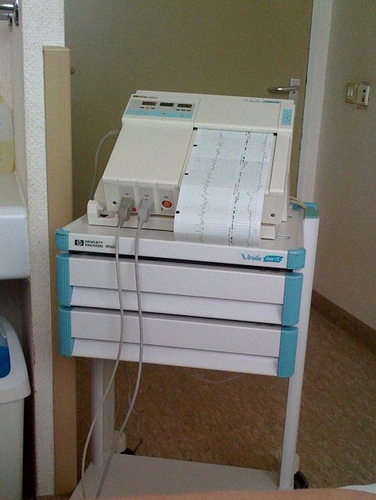(Annual health report for Long Form Non Fiction, prepared by Dr Future, December 2012)
History:
Exercises regularly, underweight (although not malnourished), says appetite is healthy (but cites challenges in consuming more food due to financial difficulties), non-smoker, occasional-drinker.
Patient (Long Form Non Fiction) reports high levels of anxiety over past 12 months. No related family history, however significant changes in home environment has created disruption. During past year patient’s parents (Print Newspaper and Print Magazine) were placed in high-level nursing care as a result of ongoing confusion.

Patient finds some relief to anxiety by ignoring advice from parents. For example, patient often pursues digital publishing opportunities and has found many new readers. However patient also reports difficulties in being heard online. Claims frequent loss of voice (no physical evidence of dysphonia present). Query: Hypochondria?
Patient is not vaccinated. Potential vaccinations were discussed, however it is difficult to know what may be appropriate. Despite lack of immunisation, patient has displayed strong constitution by enduring known super-viruses Newspaperous Demisus (still circulating within the community) and all-but-eliminated Nobodis Wantus Readus Online.
Vital signs:
Blood pressure: 100 over 80
Heart rate: 78
Respiration rate: 16
Temperature: 37 degrees
General appearance:
Initial impression is that patient looks haggard. Signs of financial difficulties and anxiety are evident (eg clothing worn-out, hair unkempt, avoids direct eye-contact). Yet patient can stand and walk confidently. Close inspection shows that eyes are bright, nose clear and colour is in the skin.
No signs of memory impairment or mental slowing.
Heart exam:
Patient complains of palpitations. Examination fails to confirm this. Overall consultation indicates that patient’s mood can oscillate between a positive and highly negative outlook of the future. These swings (and anxiety inherent in them) could explain arrhythmia.
Neurological Exam:
Patient is balanced with strong muscle but displays poor reflexes. Slow to kick when tapped on the knee by new media. (Objects strongly to this test. Claims parents were never subjected to it).
Assessment:
Psychologically patient has endured a challenging year with significant changes in home environment including move of parents into a nursing home. Patient is also struggling financially and is uncertain as to how to improve income.
Reflexes in relation to new media are a moderate concern and need to be monitored. A positive step is the patient’s commitment to pursuing paths that differ from those of parents.
Despite complaints of arrhythmia and underfed appearance the patient’s overall health is good. It’s anticipated that ongoing evolution of technology will ensure improvements in 2013.
Recommendations / Prescriptions:
- Improve reflexes through practice (engage more actively in new media).
- Improve anxiety by respecting the significant differences in the patient’s living environment and that of parents. Actively pursue independence from parental influences. (A psychologist may assist with this).
- Find new ways to earn income in order to improve weight gain.
No medication prescribed.
Next health check scheduled for December 2013.
Signed
Dr Future
Happy holidays everyone! Thanks for reading this year and all the best to you for 2013.
Future of long form will be taking a break and will return with more serious posts from 16 January, 2013.

